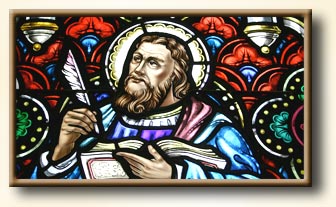|
There are, perhaps, few subjects in the life of the Christian Church and of Anglicanism which are as troublesome of definition and as productive of controversy as bishops! There is also scarcely anything more central to the life of the Church.
The word “bishop” has come through the centuries to denote the highest office in the Church, the highest of the tree apostolic clerical orders. The English word “bishop” comes from the Greek word “episkopos” which signifies an overseer, and it is used only four times in the Bible -- thrice by Saint Paul and once by Saint Peter. How then did it become so important to the Church? The story is compounded of Scriptural passages pieced together and of steady development from the very earliest days of the Church.
The earliest top leaders of the Church -- whatever they may have been called as to title -- were the Apostles, called by Christ during His lifetime or elected by the eleven after His death to fill the place left by the traitor, Judas, (Saint Matthias) or selected by Christ after His ascension (Saint Paul). There can be no doubt from any reading of the Bible or from any common-sense point of view that these thirteen men held a special place with regard to Jesus’s ministry and with regard to the Church He left behind Him on earth. They were specially chosen as overseers, as legatees, as propagators, as protectors of Christ’s earthly Body, the Church. His intentions for them are clearly described in one form or another in the four Gospel books. He empowered and commissioned them to preach and teach the Gospel, to baptize, to proclaim repentance and remission of sins, and indeed specifically to remit sins. In short they were to feed His sheep, as He told St. Peter in so many words. These commands were sealed with the descent of the Holy Ghost upon the Apostles at Pentecost.
The Apostles were succeeded as years went on by other men who took over the supervision of the Church in various areas. These men were in turn succeeded by others who came to be called bishops and upon all of whom the Apostolic hands had been laid in ordination. The status of these bishops has often been in dispute and it is so even today. The word “overseer” in itself tells us little; an overseer may be a despotic ruler or a protective guardian. Hence we must turn to Christ’s commission is that they were to be spiritual guardians, protectors of the faith, teachers, sheperds of the faithful, baptizers, ordainers, confessors. What is not at all clear is the degree of non-spiritual rule they were to exercise in the Church.
Anglicanism has tended to play up the spiritual role and, especially in its later centuries, to downplay the temporal role. History seems to bear out the theme that when bishops play well their roles as sheperds, teachers, guardians, they have almost no trouble with their flocks. It is inordinate claims of monarchical power which leads to trouble.
That bishops are central to the Church which Christ left for us cannot be disputed. We must look to them to maintain the purity of the faith, the continuity of the Church, the knowledge of the Gospel. They are the fountainhead of preaching, teaching, worship, ordination, absolution, and pastoral care. When a lay reader, a deacon, or a priest stands at the altar or otherwise functions in a congregation, he does so by the bishop’s commission or ordination. He represents the bishop, whether the later is absent or present. The bishop is the electron, the neutron, the proton, the very atomic nucleus, as it were, of the diocese and thus of the Church. He is the essential and visible representative of Christ to the diocesan Church. Without the bishop, there is no Church, in Anglicanism. That is not to say that the bishop is the Church. The Church is the whole people of God, laity and clergy alike, but the Bishop is their symbol, their shepherd, their “Father in God”. Thus the office of bishop deserves our love and our respect. In spiritual matters the bishop is supreme. In all else, he deserves respectful consideration and his counsel should be heard. Without him there cannot be worship, or preaching, or forgiveness.
|



